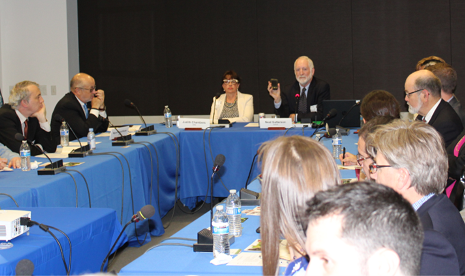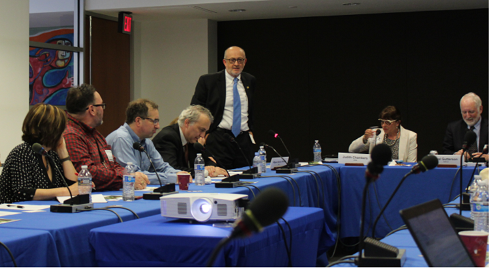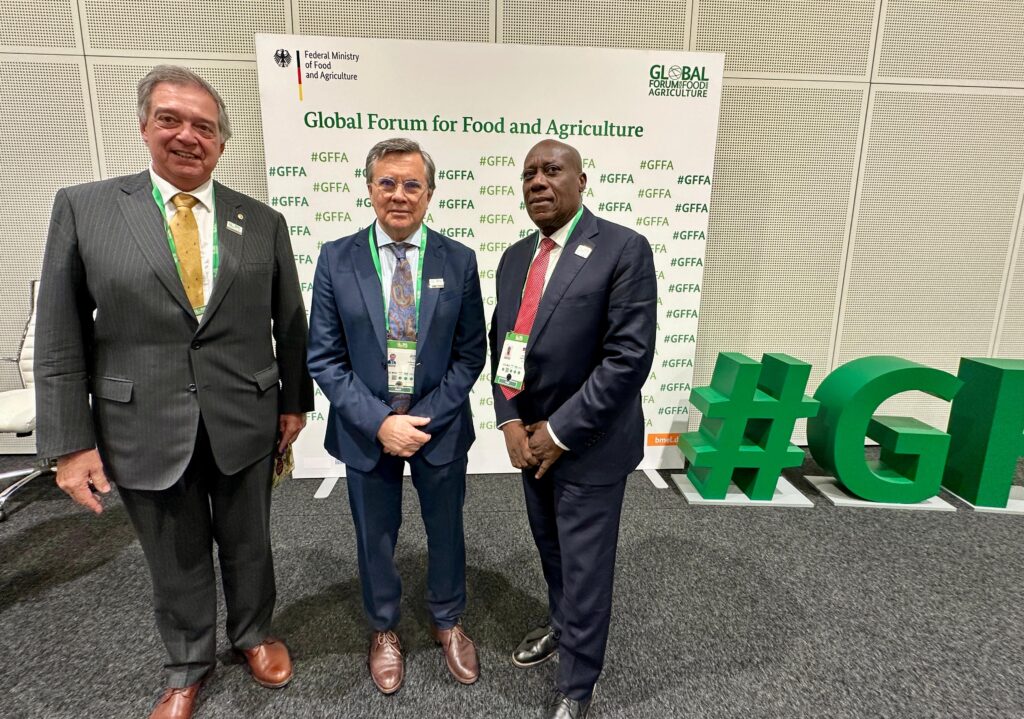Dr. Gutterson shared how his organization is using CRISPR-Cas and how they are collaborating with international partners to bring the benefits of the technology to smallholder farmers.

On April 27, 2017, the Global Harvest Initiative (GHI) and the Inter-American Institute for Cooperation in Agriculture (IICA) Delegation in USA invited various stakeholders to an informal discussion with Dr. Neal Gutterson, Vice President of Research and Development for DuPont Pioneer .
CRISPR-Cas, explained by Dr. Gutterson, is one of the most important new technologies for advanced plant breeding, offering a more targeted way to develop healthy seeds and help farmers produce more and better food, with fewer resources. Based on a natural system, CRISPR-Cas enables scientists to better target the native genetic diversity within a crop to develop innovative and sustainable seed products similar to those realized through marker-assisted plant breeding, but with even greater efficiency, accuracy and quality. However, the true promise of the technology will only be realized through active engagement with all stakeholders.
Dr. Gutterson shared how his organization is using CRISPR-Cas and how they are collaborating with international partners to bring the benefits of the technology to smallholder farmers. During this informal discussion, questions centered on the promise of such innovation and how it may be better realized for farmers as they face challenges from climate change and difficult growing conditions.

Dr. Miguel García-Winder shared three conclusions at the end of the discussion. He asked what could be the role of international organizations like IICA with such technology. He encouraged governments and the private sector to advance dialogue on this topic and he stated that scientists need to have a political commitment to promote the understanding and advancement of science.
IICA is seriously committed to promote science based dialogues for the advancement of agriculture.
Read more about this event from the Global Harvest Initiative’s latest newsletter
More information about CRISPR-Cas can be found: www.CRISPRCas.pioneer.com.
More information: miguel.garcia@iica.int
*The opinions expressed in this newsletter are those of the authors and they do not reflect the position of the Institute on the topics presented.
*This post appears in the IICA Delegation in the USA Newsletter – March – April 2017










